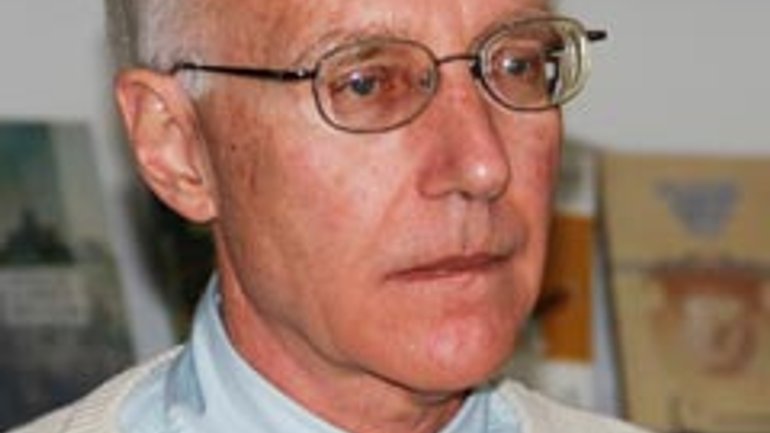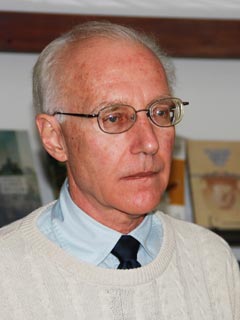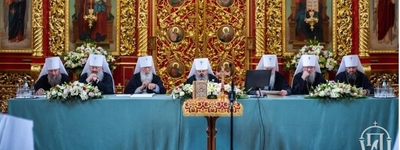What the Pope Really Said

 Over the last few days, the international press has excitedly reported on the latest sensational news from Rome: in a recent interview, Pope Francis has again appeared to take a more accommodating line on abortion, contraception, and homosexual marriage. He did note that not all moral and dogmatic teachings are equivalent, and that “doctrine is not a monolith,” for the Church’s understanding evolves over time, as man’s self-understanding develops. But on these three issues, he reminded us that the Church’s opinion is well known. Still,he continued, it is not necessary to speak continually about them.In fact, these were not the major points of this lengthy interview, which among other things touched on a couple of issues of particular interest to Ukrainians. And what the Pope did say about these matters was, in fact, far more interesting and important than anything that might encourage those who would re-make the Church in their own image, whether “liberal” or “conservative.”
Over the last few days, the international press has excitedly reported on the latest sensational news from Rome: in a recent interview, Pope Francis has again appeared to take a more accommodating line on abortion, contraception, and homosexual marriage. He did note that not all moral and dogmatic teachings are equivalent, and that “doctrine is not a monolith,” for the Church’s understanding evolves over time, as man’s self-understanding develops. But on these three issues, he reminded us that the Church’s opinion is well known. Still,he continued, it is not necessary to speak continually about them.In fact, these were not the major points of this lengthy interview, which among other things touched on a couple of issues of particular interest to Ukrainians. And what the Pope did say about these matters was, in fact, far more interesting and important than anything that might encourage those who would re-make the Church in their own image, whether “liberal” or “conservative.”
The published interview was based on a series ofmeetings with Pope Francisheld by the editor-in-chief ofthe Jesuit biweekly La CiviltàCattolica, Antonio Spadaro, S.J, on August 19, 23, and 29, and published on September 19, 2013 in that journal, as well as in other Jesuit periodicals.
In declining to place the “hot-button” issues of abortion, contraception, and homosexuality front and center, the Pope made a strategically astute move. In recent years, pressure from various interest groups has forced the Church to continually defend its policies on these questions. As a result, it has been maneuvered into appearing reactionary and inhumane. Pope Francis understands that the Church should not be distracted from her primary principles and concerns. She must regain control of the discourse and focus on what is essential.
In the interview, the Pope calls on the Church to concentrate on her pastoral mission rather than to remain “obsessed with the inarticulate transmission of a multitude of doctrines.” What is necessary and essential, he says, is what sets the heart on fire – the announcement of the Gospel in all its “freshness and fragrance.” One must begin with the “simple, profound, and radiant” evangelical message. Thus, preaching should begin with the good news of salvation. Only then can one draw the moral consequences. For “the proclamation of the saving love of God is prior to moral and religious obligation.” Commenting on these words, Stephen P. White, a fellow at the Catholic Studies program of the Ethics and Public Policy Center in Washington, DC, said that the Pope is seeking to return to the deeper core of Catholic teaching, to the heart of the Gospel, which is Jesus’ love for us. (“Pope Francis Identifies with Regular Catholics,” Washington Post, 20 September 2013.) What this means is that the Church’s teachings about abortion, contraception, and homosexuality (summarized in the Catechism at nos. 2270-2275, 2366-2372, and 2357-2359, respectively) are only comprehensible – to many, indeed, only acceptable -- when we begin with the first principles of God’s salvific love for humanity, and proceed from there.
One can add to this that these teachings are even more comprehensible and acceptable if we imagine the context of a Catholic society. For even an individual who, inspired by God’s love, is prepared to make the sacrifices necessary for living by God’s law, may find it difficult to do so when surrounded by a pagan society. But if, for example, an unmarried pregnant woman finds herself not in the midst of indifference and hostility, but in a community where all children are welcome and where the state supports the family, she is not likely to even want an abortion, much less consider it her right. And in a society infused by a moral atmosphere of self-restraint and loving sacrifice, with numerous men and women opting for monastic celibacy,married couples would be prepared to practice natural family planning while remaining open to having children. Thus, contraception would not be perceived as “necessary.” In fact, such a society could maintain a sustainable rate of population growth (unlike Europe, including Ukraine, where the indigenous population is shrinking, or other parts of the world, where it is increasing too quickly). And in that same society, the moral atmosphere that prompts some heterosexuals to accept voluntary celibacy for the love of God would also make it more acceptable for the individual homosexual to embrace chastity, as the Church recommends.
Given Pope Francis’ emphasis on simplicity and community, these thoughts would seem to be consistent with his vision. But there is much more to his interview. Aside from some thoughts on the Jesuit experience, he discusses the infallibility of the entire people of God, the need for healing (the Church should be “like a field hospital after a battle”), the Church’s pastoral mission (finding “new roads” to those who do not frequent church, have left her or remain indifferent), monastics (“the vow of chastity should be a vow of fecundity”), the need to develop a theology of women including their decision-making role in the Church (but avoiding “machismo in a dress”), art and creativity, the necessity of doubt (“If one has answers to all the questions, this proves God is not with him”), and much more.
Of particular interest to Ukrainians are the Pope’s words on ecumenism and tradition. He speculates that it may be time to change the methodology of synods, which could also have ecumenical value, especially with regard to the Orthodox. “From them, we could learn more about the meaning of episcopal collegiality and the synodal tradition.” In doing so, Catholics should recognize what the Spirit has sown in other Churches as a gift for them too.
Pope Francis warns conservatives that a restorationist or legalist, who wants everything to be clear and certain, will not find anything. “He who always seeks disciplinary solutions, who tends to doctrinal ‘security’ in an exaggerated manner, who obstinately seeks to recover a lost past, has a static and involuted vision.” That could lead to the faith becoming merely one ideology among many.Tradition and the memory of the past “should help us to have the courage to open new spaces to God.”
Pope Francis has done far more than the sensationalist press and uninformed public may have expected. He has not provided assurance to either “liberals” or “conservatives.” He has not given us leave to return to our comfort zone. Rather, he has challenged us to embark on an exciting and unpredictable journey to the limits of our experience. “One should not bring the frontier home,” he says, “but live on the frontier and be audacious.” For “God is always a surprise.”










